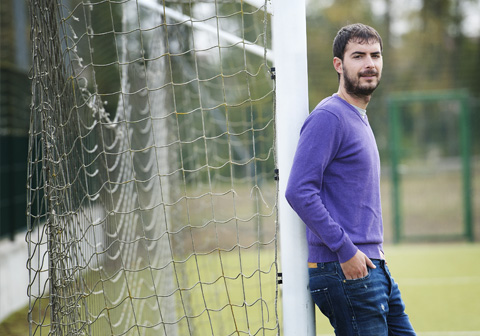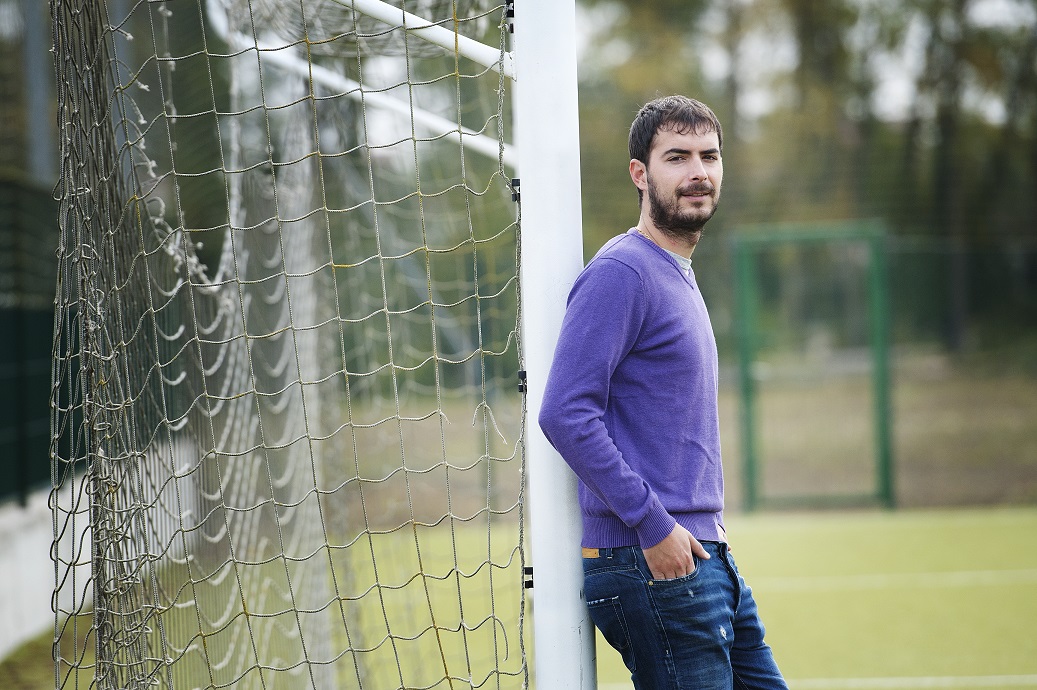The thesis by Diego Marqués-Jiménez describes the effect of playing football matches while wearing compression garments and also the effect of compression treatment during the recovery period.
Compression garments in sport
Their use would have a positive effect on recovery from fatigue and muscle damage in football players
First publication date: 26/10/2017

Even though numerous studies have been published in leading biomedical journals about the underlying processes involved in post-exercise recovery, knowledge pertaining to the recovery processes remains in a state of scientific underdevelopment compared with the advances made in the area of training. Right now, the effects of certain strategies in recovery from fatigue or from exercise-induced muscle damage in football players are being reported on, but so far no piece of work had evaluated the effect of wearing different types of compression garments during friendly matches and during the recovery period. In this respect, the PhD thesis by Diego Marqués-Jiménez and entitled ‘Effectiveness of compression garments as a means of muscle fatigue recovery in football players' has been written up using scientific studies that have been or are being published in international JCR-indexed journals in which he himself has participated.
The thesis brings together four pieces of research including a review of the main mechanisms of fatigue and muscle damage in football, as well as the considerations to bear in mind when assessing the recovery process in football, a systematic review with meta-analyses of the effects of compression therapy in recovery from exercise-induced muscle damage, and two experimental studies that explore the effect of playing friendly matches while wearing a range of compression garments, and the effect of them over the three days following the match.
The competitive demands and the high, variable physical demands to which the football player is subjected may result in a high level of fatigue and stress in physiological systems and may affect the time needed to recover completely following a competition and have an effect on performance during the days after the match. What is more, and given that the sportsperson spends longer recovering than training, optimizing the recovery period by applying various recovery strategies is an essential procedure in preparing for the next match or training session. So this PhD thesis provides further information on a strategy that could optimize these recovery processes.
The results of the systematic review using meta-analyses show that compression garments may contribute towards recovery following exercise, but the results would need to be corroborated and are not very conclusive since most of the studies included are highly heterogeneous, so they would need to be interpreted with caution. The results of the experimental studies show that despite the scant statistical significance achieved, the various types of compression garments could have a positive effect on mitigating the responses caused by fatigue as well as by exercise-induced muscle damage. To address fatigue symptoms, compression leggings seem to be more effective, and to address muscle fatigue, compression leggings and thigh sleeves appear to be the most effective. In any case, as the author points out, "the high variability of the football player's physical response to the demands of a football match points to the need for new studies in actual match situations that would allow practical conclusions to be drawn and which would be applicable bearing this variability in mind". This would allow the effect of this recovery strategy to be verified in the physical, physiological and perceptive responses in football players.
Further information
The thesis was supervised by Drs Javier Iñaki Arratibel-Imaz and Julio Calleja-González in the Department of Physical and Sports Education of the UPV/EHU-University of the Basque Country with the collaboration of Dr Nicolás Terrados-Cepeda; it brings together the results of various published scientific studies.
Bibliographical references
Marqués-Jiménez, D., Calleja-González, J., Arratibel, I., Delextrat, A., Terrados, N. ‘Fatigue and recovery in soccer: evidence and challenges'. The Open Sports Sciences Journal, 10, (Suppl 1: M5) 52-70 (2017).
Marqués-Jiménez D, Calleja-González J, Arratibel I, Delextrat, A., Terrados, N. ‘Are compression garments effective for the recovery of exercise-induced muscle damage? A systematic review with meta-analysis'. Physiology y Behavior, 153: 133–484. (2016).
Marqués-Jiménez D, Calleja-González J, Arratibel I, Delextrat, A., Uriarte, F., Terrados, N. ‘Physiological and physical responses to wearing compression garments during soccer matches and recovery'. J Sports Med Phys Fitness (2017). Doi: 10.23736/S0022-4707.17.07831-8.
Marqués-Jiménez D, Calleja-González J, Arratibel I, Delextrat, A., Uriarte, F., Terrados, N. ‘Influence of different types of compression garments on exercise-induced muscle damage markers after a soccer match'. Research in Sports Medicine (2017) (aceptado y pendiente de publicación).



